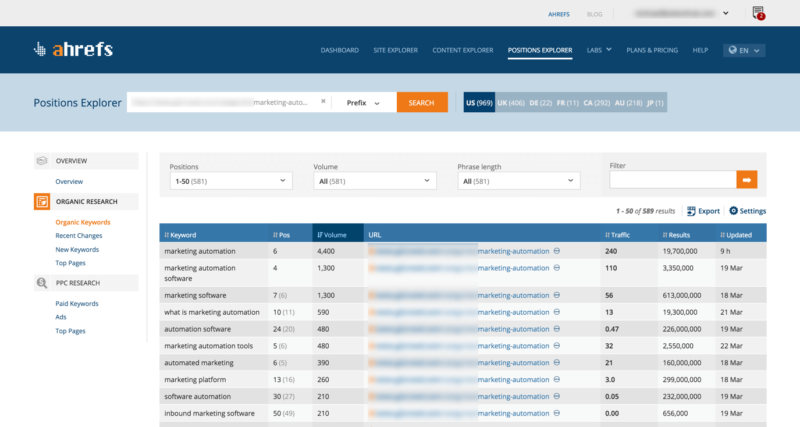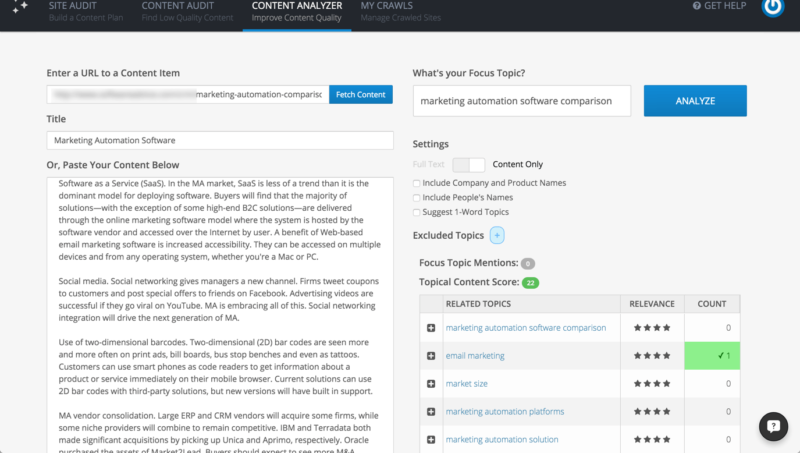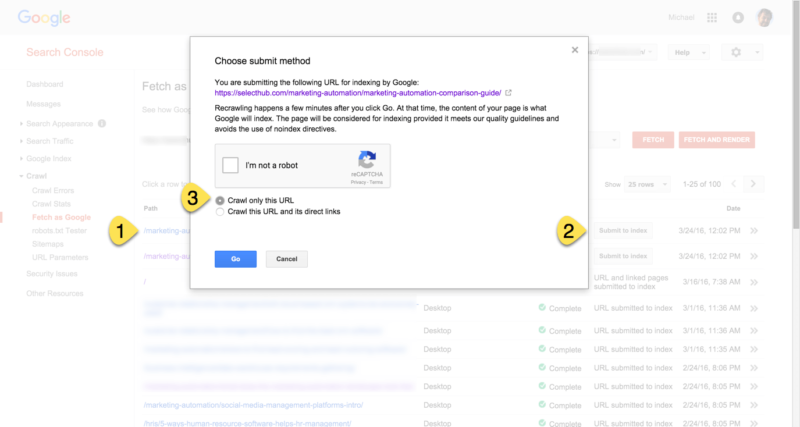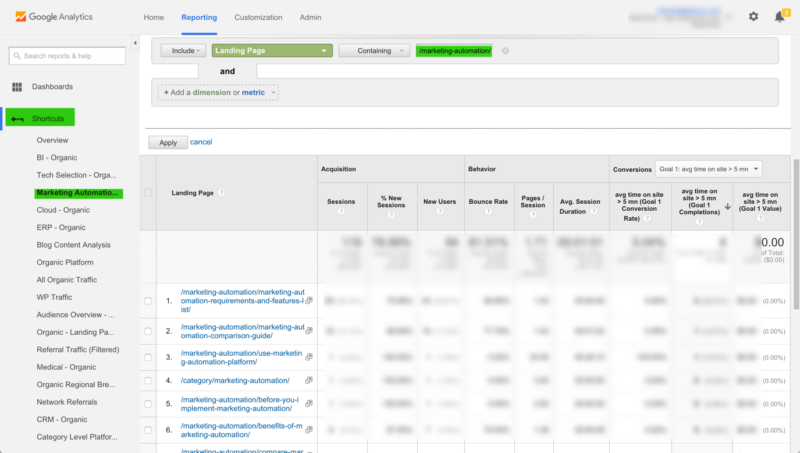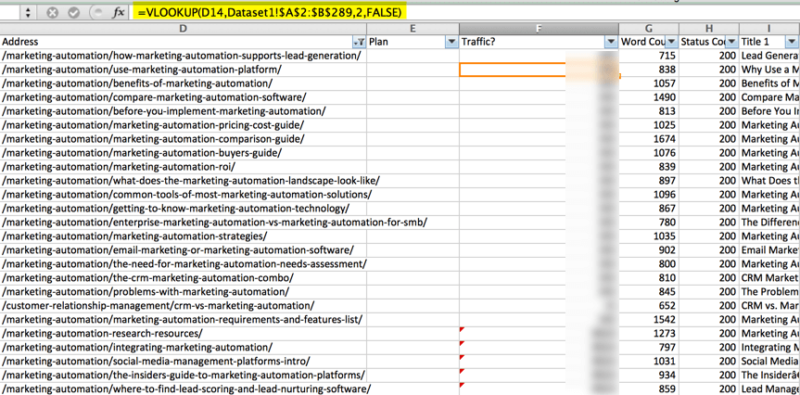How I use my marketing technology stack (SEO edition)
What does your SEO technology stack look like? Columnist Michael Shearer walks through the tools he uses from keyword research to content creation to link-building outreach.

Marketing technology (martech) stacks are all the buzz right now, especially following the Stackie awards given out at the MarTech Conference recently. There were some excellent visualizations of what technologies companies use and how they categorize them within different stages of their funnel.
To me, this is all very fascinating. I love checking out what other companies are using and discovering new tech solutions. But these visualizations are missing something: how do they specifically use it all?
We need some good how-to content around using martech stacks. Originally, I had wanted to outline some step-by-step use cases for my martech stack(s), but I realized that I could write a book on it. Instead, I’m going to focus on how I use my martech stack to manage my SEO efforts.
I look at SEO like a carousel:
- It’s constantly going round and round — continuous, unending efforts are needed to compete in new topics or keywords and to keep up with changes in the way search engines operate.
- There is a center pole that all of it revolves around. (Any guesses as to what that is? Yup, content!)
- Users or visitors arrive to your site through search engine results, and your goal is to keep them riding through the site. (Okay, maybe that is a stretch on the analogy, but I’m going with it.)

I call the dragon with the goatee!
For the purpose of this guide, let’s get on the carousel at the “new keyword/topic targeting” part of SEO.
Like most, my goal is to ultimately rank high on page one for a given topic. Since I’m primarily in B2B marketing, let’s select something related to that, with which I’m intimately familiar. Let’s go after “marketing automation comparison” and related terms.
Here’s how I use my SEO-related marketing technology stack to make this happen:
Initial analysis
I first search the term in Google, collecting the of URLs of the top-performing results. I run these URLs through Ahrefs Position Explorer (tool #1), filtering on keywords ranking in the top 50 results and sorting descending by volume:
I repeat this process four or five times, exporting each file, combining them into a Excel spreadsheet (tool #2). Then I run a pivot table on the data to see what keywords occur most commonly within the data set, filtering them by various volumes (to try to find the long-tail opportunity, if there is one).
Content creation
Next, I pick the core topic from above (in this case, “marketing automation software comparison”) and run it through MarketMuse (tool #3) against at least one of the competitor URLs I analyzed in step 1.
This helps output a selection of “Related Topics” that I know I’ll need to include in my content creation. After I’ve outlined, sourced and created the content offline, I run it through MarketMuse again to see if I’m missing any gaps. (Note: This a very simplified view of creating content. Great content creation is covered extensively elsewhere and is beyond the scope of this article).
Once I’ve published the content, I run it through Moz’s On Page Grader (tool #4), as well as load the collection of keywords I want to track rankings for within Moz Rank Tracker.
Part of this content publishing process is making sure I have an inline call-to-action — generally pointing these CTAs to an Unbounce (tool #5) landing page. Unbounce lets me split test variants and send my leads to other software in my MarTech stack outside of my core SEO tools (like Salesforce and Net-Results).
Getting the content found
Before I go into outreach mode, I try to run every URL I publish through Google Webmaster’s (tool #6) “Fetch as Google” feature. If you don’t do this, consider it a little secret tip between you and me.
The next piece in the SEO puzzle is doing outreach.
Buzzstream (tool #7) is my tool of choice here. A CRM built for outreach/link-building campaigns, it’s incredibly slick. I’m not going to go into all of its features or my strategies with outreach, as there is a world of content about that out there already.
I do want to highlight making use of their Chrome extension to easily add target publications on the fly. Just click on it when you’re on a site you want to do outreach to and it will dig some good info for you that you can then file and save in Buzzstream. Works like a champ.
Follow-up analysis
Let’s fast-forward a bit…
Now that I’ve published content and successfully earned some backlinks to it, what tools do I use to see how I’m doing and what my next steps would be?
First, I have a look-see (Do people still say that?) at my Google Analytics (tool #8) report, as well as GWT Search Analytics to see how much traffic my page is getting and to find some of the keywords that it is popping for. Nothing mind-blowing here…
To dig deeper into what keywords are working, I also run my content through Ahrefs position explorer again. Note: Often, this is more fruitful the more time has passed.
SEO tool honorable mention
This guide was more intended for a concentrated piece of SEO work — not a full audit. If I had a collection of content around a subject, like a handful of blog articles in a specific category, I’d bring Screaming Frog (tool #9) into the mix. First, I run an index of the blog category and export it to a CSV file.
Next, I’d run a Google Analytics report (anywhere from 30 to 90 days) on the same subdirectory as I’ve just pulled from Screaming Frog and export that for Excel, too.
I’d combine the two files (Screaming Frog and Google Analytics) and do a vlookup to see what content is driving traffic and what content has failed to perform.
From there, I decide whether I want to try to re-optimize the content, merge the content into a better piece or just delete (not forgetting to do 301 redirects as needed). The gang over at Ahrefs actually wrote a great post on this that pretty much outlined my process.
9 Tools, One Goal
As you can see, I’ve highlighted nine different marketing technology tools I use for just my SEO efforts. And that doesn’t include things like WordPress, its respective SEO plugins and other little scripts and extensions I leverage in my research efforts.
Hopefully, this helps you understand a little more about how one uses these marketing technology stacks, how important having a robust marketing technology stack can be, and the different value each technology brings (when put to good use). Perhaps this will also help provide some fuel to marketing teams out there wanting to acquire that shiny new marketing software.
Let me know if I’m missing something — perhaps I can answer it on Twitter.
Contributing authors are invited to create content for Search Engine Land and are chosen for their expertise and contribution to the search community. Our contributors work under the oversight of the editorial staff and contributions are checked for quality and relevance to our readers. The opinions they express are their own.
Related stories
New on Search Engine Land
